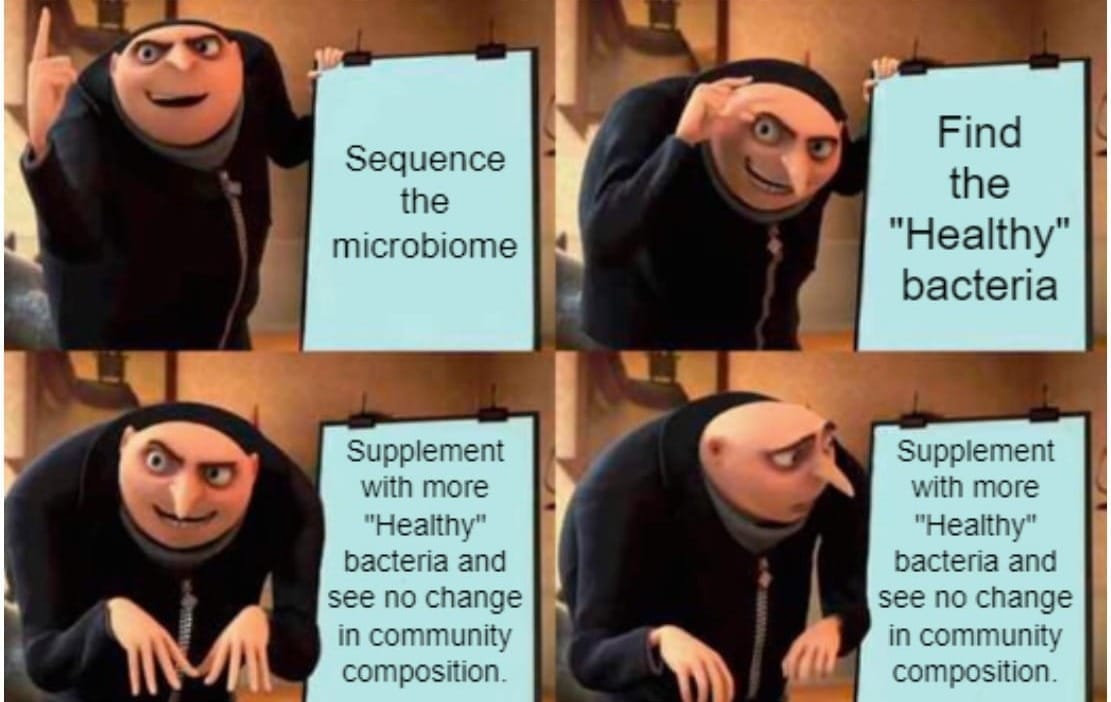Studying the microbiome is really just a lesson in ecology!
Plants, animals, the soil, and even your toilet seat have a microbiome!

The word microbiome was first used to describe all of the microbes that inhabited a specific environment.
Many of the words we use when talking about the microbiome come from ecology which is the study of how organisms (usually plants and animals) interact with each other and their environments.
So, the microbiome is actually something that’s studied as a part of the field of microbial ecology which covers basically all of the different microbiomes.
We might like to think that “the microbiome” is a human centric thing, but that’s a surefire way to make a microbial ecologist angry!
Because plants, animals, the soil, and even your toilet seat have a microbiome!
In traditional ecology, a biome is a specific geographic area that is defined by the climate and the plants and animals that inhabit it.
But instead of talking about polar bears and walruses living in the arctic tundra, for the gut microbiome, we talk about the Prevotella, Bacteroides, and Clostridium that colonize your colon!
Today the microbiome is defined as the community of microorganisms that live on or in a specific environment and how they interact with one another.
These include bacteria, fungi and viruses but also the activities and interactions of their epigenomes, genomes, transcriptomes, proteomes and metabolomes.
Much like any other complex biological system, the only way to truly understand the microbiome is by looking at all of the major -omes!
This also helps us to understand what roles all of these organisms play within their community and how they survive in their niche.
Because just like in ecology, relationships exist between organisms and these can include:
Predation - Pretty straight forward, a predator eats prey.
Competition - A battle between two or more organisms over limited resources.
Commensalism - One organism benefits from a relationship and the other is unchanged.
Mutualism - Both organisms benefit from a relationship.
Parasitism - One organism benefits while the other is harmed.
So, why am I going into excruciating detail about ecology as it relates to the microbiome?
Because it's important to understand that if we want to learn anything about how we can alter the microbiome to improve human health we also need to realize that it's an incredibly complex biological system all in itself.
The microbiome isn't just about identifying the organisms in a community and saying “these are healthy and these other ones aren't.”
That's because the role of an organism changes in complex ways based on what other organisms are present and the environment in which it resides.
So, simple approaches and explanations of the microbiome won't do and there's still a lot of science that needs to be done before we can start changing the human microbiome to our benefit.
